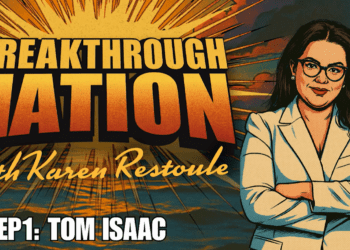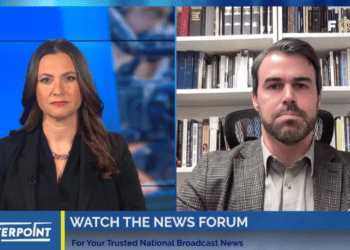 Canadians should be skeptical that a new agreement between the premiers will actually result in liberalized trade across provincial boundaries, write Brian Lee Crowley and Sean Speer in the Globe and Mail.
Canadians should be skeptical that a new agreement between the premiers will actually result in liberalized trade across provincial boundaries, write Brian Lee Crowley and Sean Speer in the Globe and Mail.
By Brian Lee Crowley and Sean Speer, July 23, 2016
The 190-word statement put out by premiers on the new agreement on interprovincial trade barriers calls the deal “ground-breaking.” But it’s nothing of the sort.
This isn’t even the much promised and long delayed agreement itself, but only an agreement in principle to have officials draft something for premiers to consider. It’s a patent attempt by the premiers to whistle past the graveyard by calling this infinitesimal movement progress, in the deplorable tradition of past such agreements. Until we see chapter and verse on what barriers will actually be removed and how the new agreement will be enforced, serious doubts must remain about what real progress has been achieved.
These outstanding questions reflect an inherent flaw in the relying on the provinces to negotiate away interprovincial trade barriers. Only Ottawa can bring real economic freedom to Canada.
Proponents of the new agreement highlight that it will cover a broader range of interprovincial barriers, that government procurement is being opened up, and a new working group on alcohol sales may eventually lead to liberalising the market.
But we predict that this will prove literally to be pretty small beer. Especially since the premiers’ own statement concedes that specific exclusions will remain after the new agreement is in place and major new provincially-invented barriers such as obstacles to interprovincial pipeline construction are outside its scope. Add the silence on a binding enforcement mechanism such as serious monetary penalties and real questions about the agreement emerge.
 The risk is that this new agreement experiences the same fate as the one came before it. The Agreement on Internal Trade failed because of what one former senior official has called “local interests and personal ambitions.”
The risk is that this new agreement experiences the same fate as the one came before it. The Agreement on Internal Trade failed because of what one former senior official has called “local interests and personal ambitions.”
Herein lies the inherent flaw of subjecting interprovincial trade barriers to a negotiation among the provinces. The provinces created these barriers – in beer, wine, transport, electricity, labour policies, and so on – in response to local interests or concerns, and thus there’s little upside for these governments to eliminate them in the name of the national economy. Put differently: what political reason does a premier in one province have to eliminate protectionism to the benefit of a business or worker located in another province?
This must be the responsibility of the national government. The Fathers of Confederation understood this basic imperative and thus gave Ottawa extensive powers to regulate interprovincial trade and commerce and enable a national economy free of barriers. As Alexander Galt, Canada’s first finance minister, put it: “No one can doubt that the great interests of trade and commerce will be best promoted and developed by being entrusted to one central power, which will wield them in the common interest.”
Yet successive federal governments have been reluctant to exercise this responsibility and instead left it to the provinces to negotiate the removal of trade barriers. It’s worth noting for instance that the new agreement in principle was reached in Whitehorse without Ottawa at the table.
But negotiations that treat trade barriers as bargaining chips rather than an affront to the vision of Confederation are bound to disappoint. As leading constitutional lawyer Ian Blue has written: “the main objection to interprovincial trade barriers should be that they violate the Constitution of Canada.”
And the cost is not just to the economic union. It’s also borne by Canadians. Real people, real businesses, real workers who’re trying to earn their otherwise legal and legitimate livelihoods are prevented from doing so, and their rights are ignored or denied.
One of the central goals of Confederation was that these rights wouldn’t be subjected to provincial whims or political negotiation. The genius of federalism is to allow the creation of a unified economic space while preserving local social and cultural communities. Local decisions are decentralized to the extent possible. But matters of national interest – such as the functioning of the national economy – are entrusted to the national government.
The upshot is that the provinces don’t ask Ottawa for input on K-12 education and the federal government doesn’t run military decisions past the premiers. Why, then, is Ottawa relinquishing its responsibility for the national economy and the economic freedom of Canadians?
Early signs strongly suggest that the new agreement on interprovincial trade is unlikely to live up to Galt’s vision of the “common interest.” It’s time for Ottawa to stand up for the constitution and the rights of Canadians and against provincial protectionism. That would be truly ground-breaking.
Brian Lee Crowley is the managing director and Sean Speer is a senior fellow at the Macdonald-Laurier Institute




